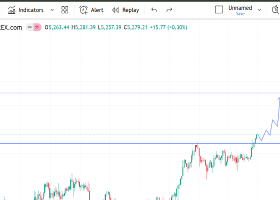JPY: Negative External Environment Remains Supportive – MUFG
Lee Hardman, Currency Analyst at MUFG, notes that the yen has strengthened modestly overnight supported by the more risk-averse trading conditions.
Key Quotes
“The yen has been in an up-trend since the middle of last year and there are no indications that the tide will turn in the near-term. It appears more likely that yen gains could accelerate further. The next key support level for USD/JPY comes in at just above 105.50 which is where the low from early last month is located. The current negative external environment remains supportive for the yen.
The upcoming EU referendum in the UK could potentially provide an unwelcome negative shock to global growth, especially in Europe, which is already weak leaving it more vulnerable. We would expect the yen to be one of the main beneficiaries in the foreign exchange market if the UK votes to leave the EU on the 23rd June alongside the Swiss franc and the US dollar to a lesser extent.
Global growth concerns are in part contributing to yields falling to new record lows. The narrowing of yield spreads both nominal and real between Japan and overseas has encouraged the reversal or prior yen weakness. EUR/JPY has now fallen by almost 30 big figures since peaking at close to the 150.00-level at the end of 2014. The pair is now back close to levels which prevailed before the BoJ first announced QQE back in April 2013. The yen is no longer clearly undervalued. If the external environment continues to deteriorate the yen is likely to strengthen further and become overvalued.
The current negative external environment leaves the BoJ in a difficult position ahead of their upcoming policy meeting next week which comes just before the EU referendum in the UK. The strengthening yen is keeping pressure on the BoJ to deliver further policy easing by increasing downside risks to their outlook for inflation.
Our analysts in Tokyo do not expect the BoJ to deliver further easing next week which should keep the yen on a firmer footing. Even if the BoJ surprised and delivered further stimulus next week it could have only a limited negative impact on yen as market participants are likely to become increasingly wary of the potential negative shock from Brexit nearer to the date of the referendum which should boost safe haven demand for the yen in the coming weeks. It suggests that the BoJ should hold its powder dry until after the referendum has passed.
The Japanese government has already announced an easing of fiscal policy to help support growth by delaying the next planned sales tax hike from April of next year until October 2019. Prime Minister Abe has pledged to implement bold new measures in the autumn to accelerate the implementation of Abenomics as well. However, in the interim it appears more likely that investor confidence in Abenomics will continue to diminish supporting a stronger yen.”
![]()



